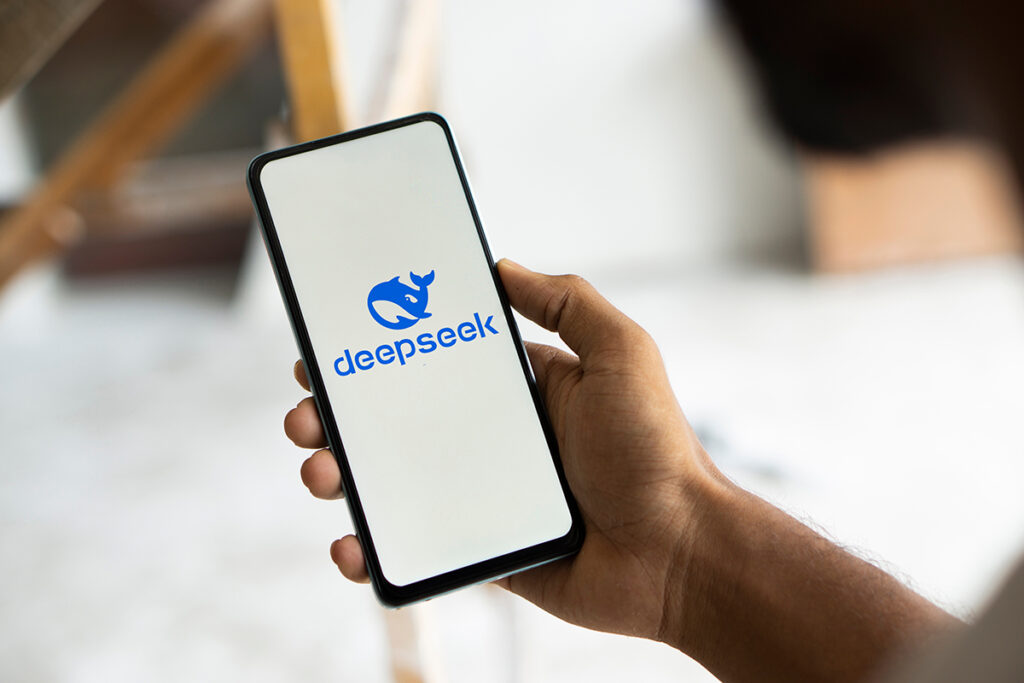A Chinese artificial intelligence (AI) model, DeepSeek, has rapidly become the most downloaded app on Apple’s App Store, sending shockwaves through the global tech industry. Released on January 20, 2025, the AI-powered chatbot has drawn widespread attention, forcing US tech giants to reassess their competitive strategies.
The AI model’s sudden rise has caused major financial repercussions, particularly for Nvidia, which saw its market value drop by $600 billion in a single day—marking the largest single-day loss in US history. The disruption has challenged conventional beliefs about AI development, proving that cutting-edge models can be built with fewer advanced chips and lower costs than previously thought.
A New AI Contender on the Global Stage
DeepSeek is a free AI chatbot that closely resembles ChatGPT in both function and usability. It competes directly with OpenAI’s o1 model, particularly in mathematics and coding tasks. Unlike traditional AI models that rely on extensive memory usage, DeepSeek utilizes a “reasoning” approach, which incrementally produces responses while minimizing computational demands.
Despite its advanced capabilities, DeepSeek adheres to strict government censorship policies. Like other Chinese AI models, it avoids politically sensitive topics, ensuring that responses align with national guidelines. While this limitation may hinder its global adoption, DeepSeek has still managed to captivate millions of users.
China’s Strategic AI Expansion
DeepSeek’s rapid success comes at a time when China is intensifying its push for AI supremacy. The Chinese government has prioritized AI development, shifting its focus from traditional manufacturing to cutting-edge technologies such as artificial intelligence, chips, and electric vehicles.
Despite US-imposed restrictions on advanced chip exports, Chinese AI firms continue to thrive. DeepSeek’s development was made possible through a stockpile of 50,000 Nvidia A100 chips, acquired before the US banned their export in September 2022. By combining these high-end chips with cheaper, less sophisticated processors, the company has been able to reduce training costs while maintaining strong AI performance.
At an estimated $6 million training cost, DeepSeek’s model is significantly cheaper than OpenAI’s GPT-4, which required over $100 million to develop. This cost efficiency has raised concerns among US companies about maintaining a competitive edge in AI innovation.
Market Fallout and Security Concerns
DeepSeek’s rapid ascent has triggered uncertainty in financial markets, leading to a 3% drop in the Nasdaq index. The decline affected chip manufacturers and data centers worldwide, reinforcing the growing concern that AI breakthroughs may no longer depend on expensive, high-performance chips.
Nvidia, once the most valuable company in the world, fell to third place behind Apple and Microsoft following its 17% stock price decline. The financial upheaval has cast doubt on the sustainability of expensive AI development models, prompting investors to reconsider their long-term strategies.
Additionally, security concerns have emerged regarding DeepSeek’s data privacy and management. Some global leaders have urged caution, citing potential risks related to user information and the AI’s governance framework.
A New Era in AI Competition
DeepSeek’s success has been met with celebration in China, where it is seen as a testament to the country’s growing technological independence. Chinese state media has highlighted its disruptive impact on Silicon Valley and Wall Street, reinforcing the narrative of a new era in global AI competition.
As AI technology continues to evolve, DeepSeek’s rise signals a shift in innovation dynamics, challenging US dominance and proving that AI advancements are no longer limited to companies with the highest budgets and most powerful hardware.


